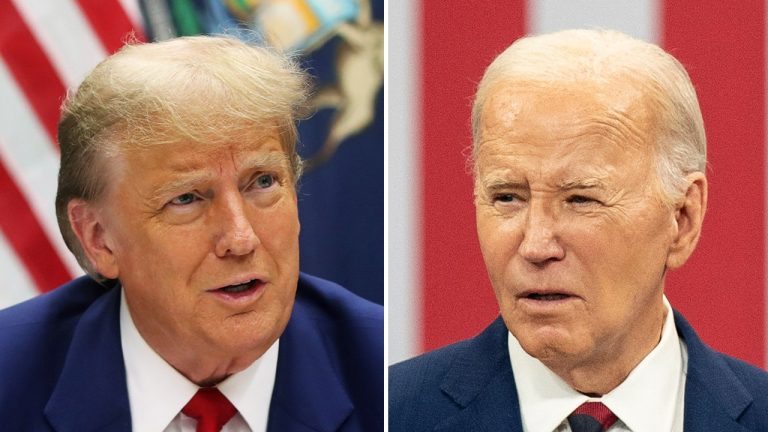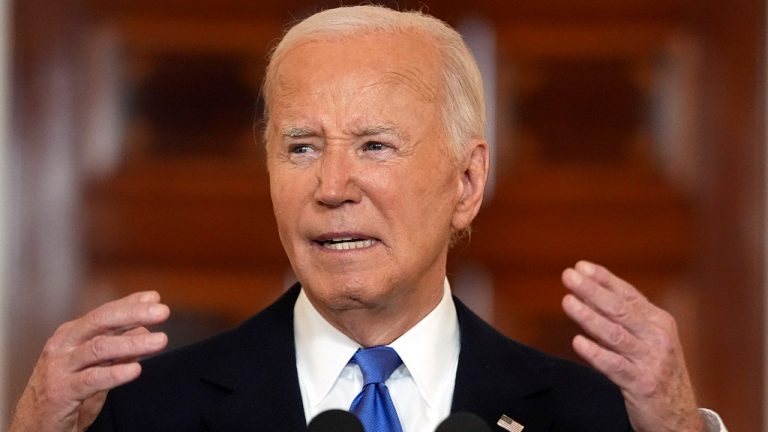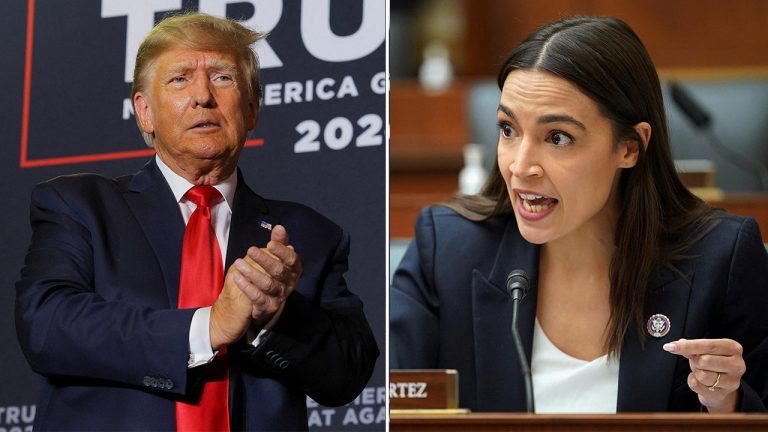Harris’ comments on border issues worry Democratic candidates as GOP ad previews election strategy.
Vice President Kamala Harris’ approach to the southern border crisis is causing ripples in the political landscape, particularly for down-ballot Democrats gearing up for the November elections. Potential fallout from this issue has Arizona Republican Senate candidate Kari Lake gearing up to use this against the Democratic ticket in battleground states.
Lake’s first ad for the general election campaign paints a grim picture, linking Rep. Ruben Gallego, the Democratic Senate nominee in Arizona, with Harris in a way that suggests they are detrimental to the border, Arizona, and America as a whole. The ad highlights Gallego’s record of voting in alignment with President Biden and Harris 100% of the time during the 117th Congress (2021-2022) according to FiveThirtyEight.
This ad is just a part of a $10 million ad reservation that Lake announced back in May, indicating a significant investment in spreading this message to voters. The video footage juxtaposes various comments made by Harris and Gallego regarding border policies, paint a narrative that suggests their stance is not aligned with the interests of the country.
One clip shows Harris expressing her belief that individuals who cross the border should not be treated as criminals, a sentiment shared during her presidential campaign in 2019. Gallego is shown rejecting the necessity of a border wall in subsequent footage from a CNN interview in 2018, further solidifying the link between the two in the ad.
Another troubling clip features Harris entertaining the idea of abolishing Immigration and Customs Enforcement (ICE), suggesting a need to “start from scratch”. These statements, though made in the past, are being used in the present to shape the narrative around the current border crisis and the individuals who might play a role in addressing it.
Gallego’s criticism of former President Trump’s proposed border wall in 2017, dubbing it as “stupid” and “dumb”, is also resurrected in the ad to highlight his opposition to certain border security measures. The political ad is strategically crafted to emphasize their perceived weaknesses and shortcomings in handling critical issues like immigration and border security.
The political landscape in Arizona is heating up with Lake and Gallego at the forefront of this battle for Senate. Lake’s assertion that she is willing to oppose even bipartisan bills backed by Border Patrol if they do not address the border crisis adequately is a strong statement reflecting her commitment to her views on border security.
While some critics might argue that the bipartisan negotiated border security bill was squashed by Trump, Lake’s camp maintains that the bill was insufficient in addressing the border crisis effectively. In contrast, Gallego claims he would have supported the bill, exposing a deeper divide in their approaches to tackling the pressing issue of border security.
With Lake securing the Republican nomination for Senate by defeating Sheriff Mark Lamb and Gallego running uncontested for the Democratic nomination, the stage is set for a showdown in Arizona’s political arena. Incumbent Senator Sinema’s decision not to seek re-election adds another layer of complexity to the Senate race, potentially shifting the power dynamics in the state.
The Cook Political Report rates the Arizona Senate race as “Lean Democratic,” signaling a tight contest that could sway in either direction leading up to the elections. This designation, alongside similar ratings for Senate races in Wisconsin and Pennsylvania, underscores the significance of these races in determining the balance of power in the Senate.
As the battle for the Senate seat in Arizona intensifies, the spotlight remains on how candidates like Kari Lake and Ruben Gallego navigate the complex terrain of border security, immigration policies, and their implications on the electoral landscape. With both sides making bold statements and strategic moves, the outcome of this race could have far-reaching consequences for the state and the country at large.








